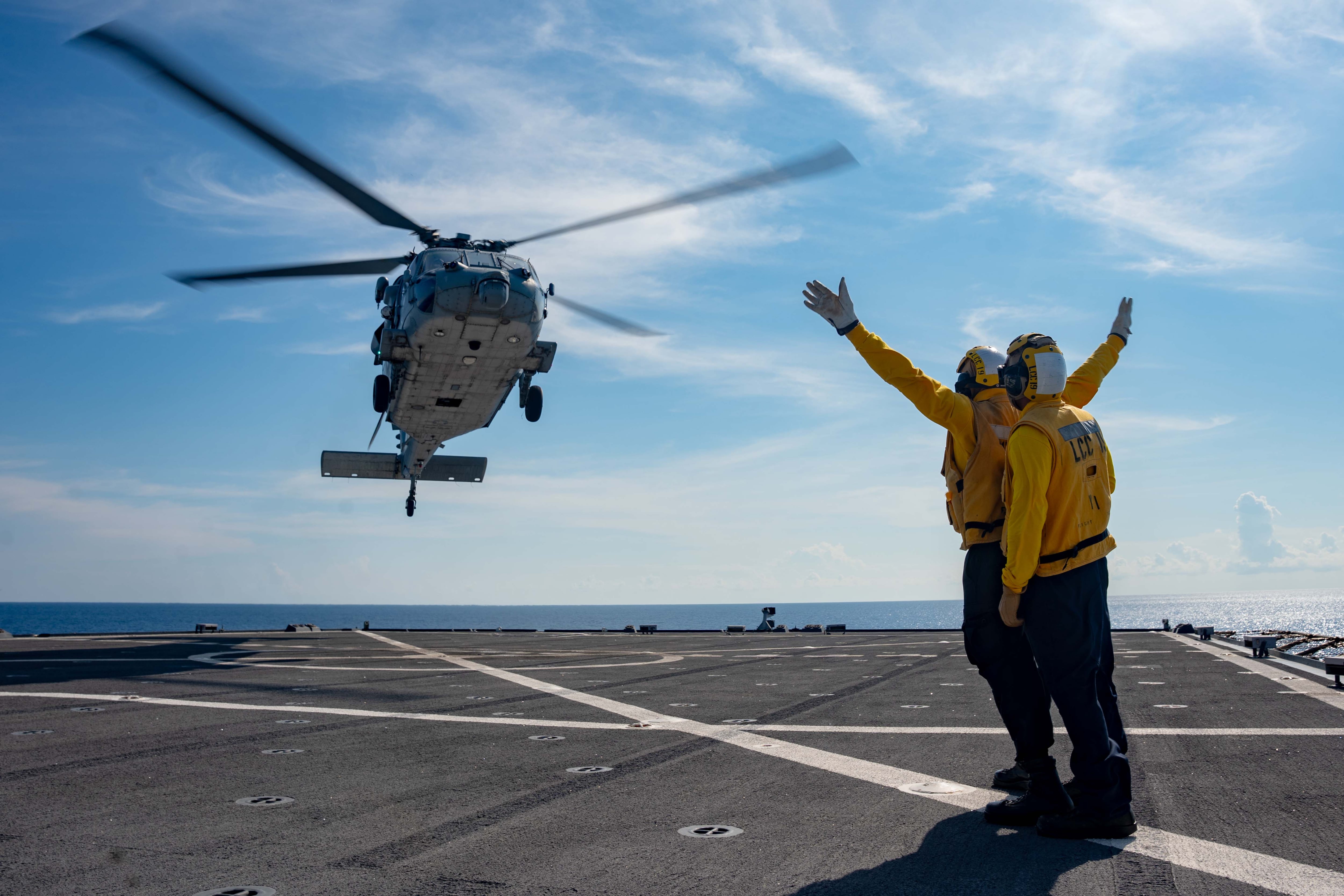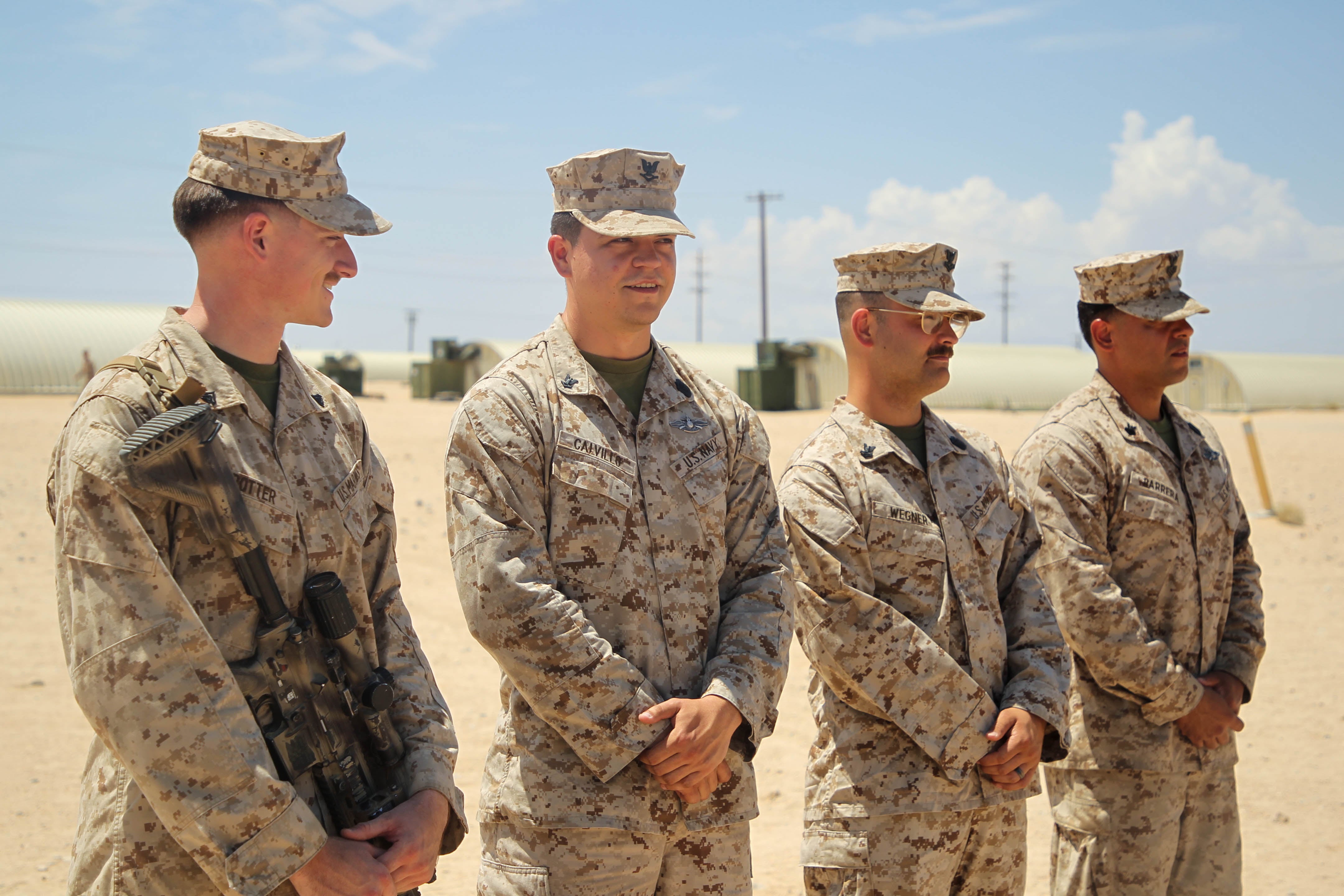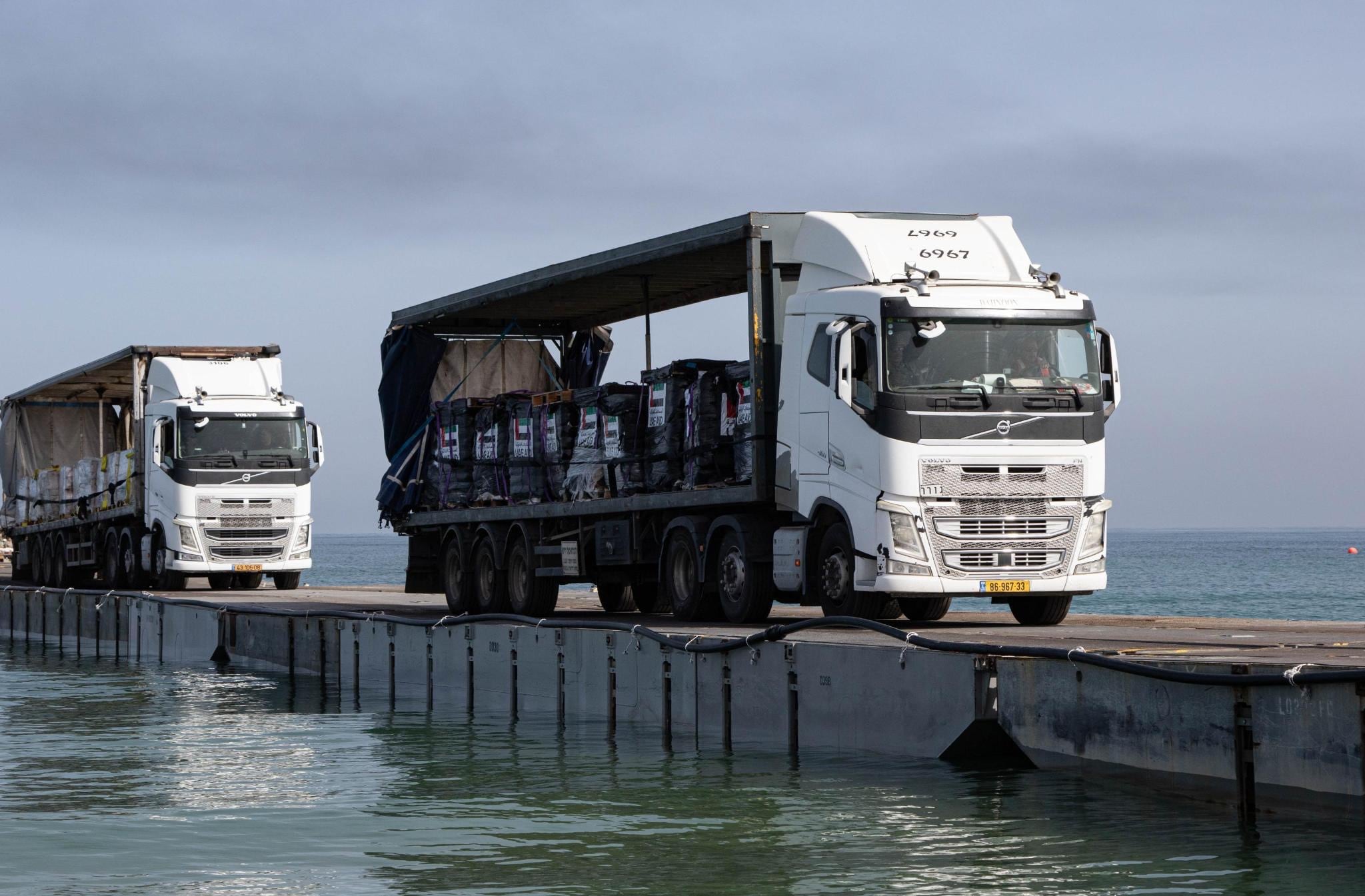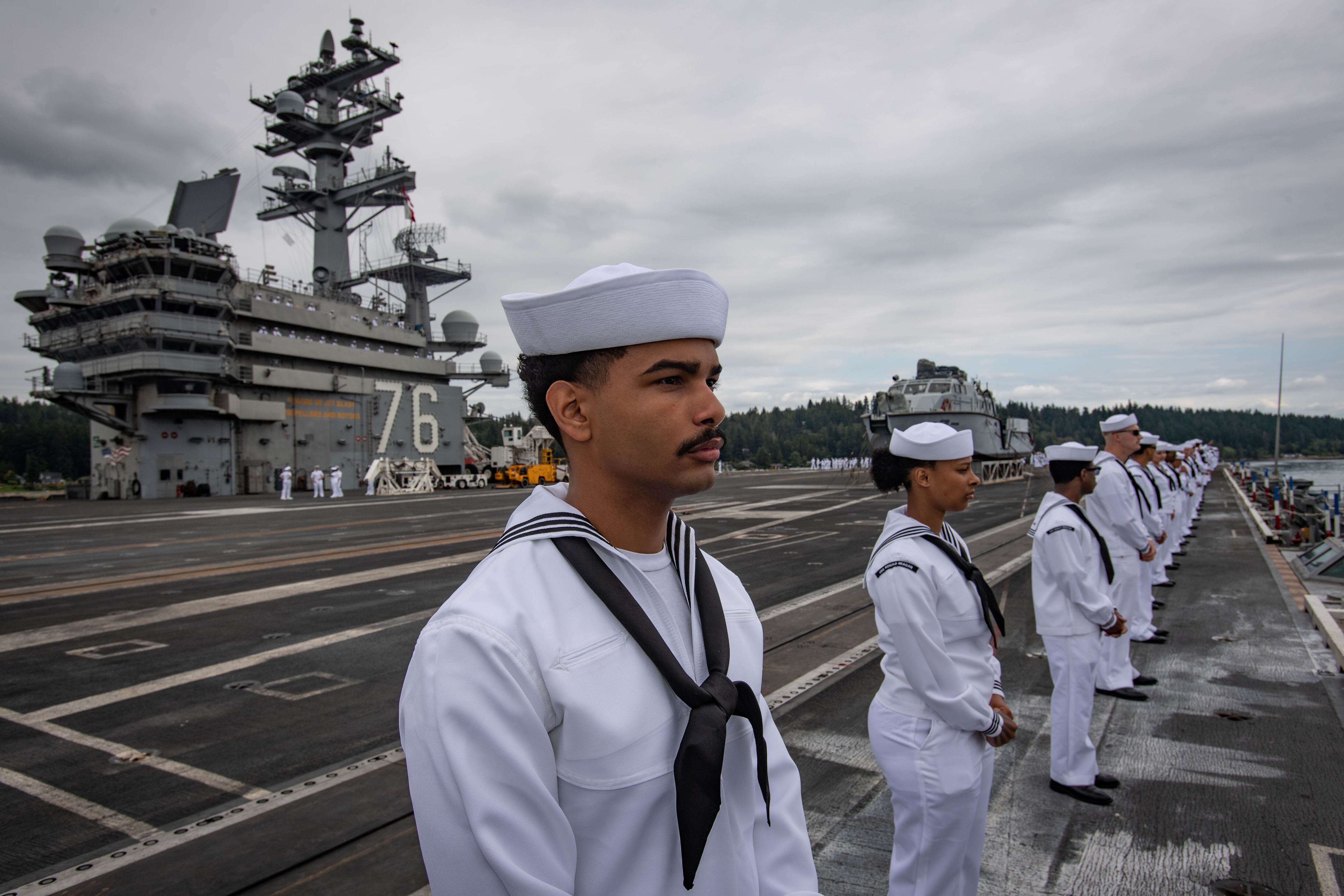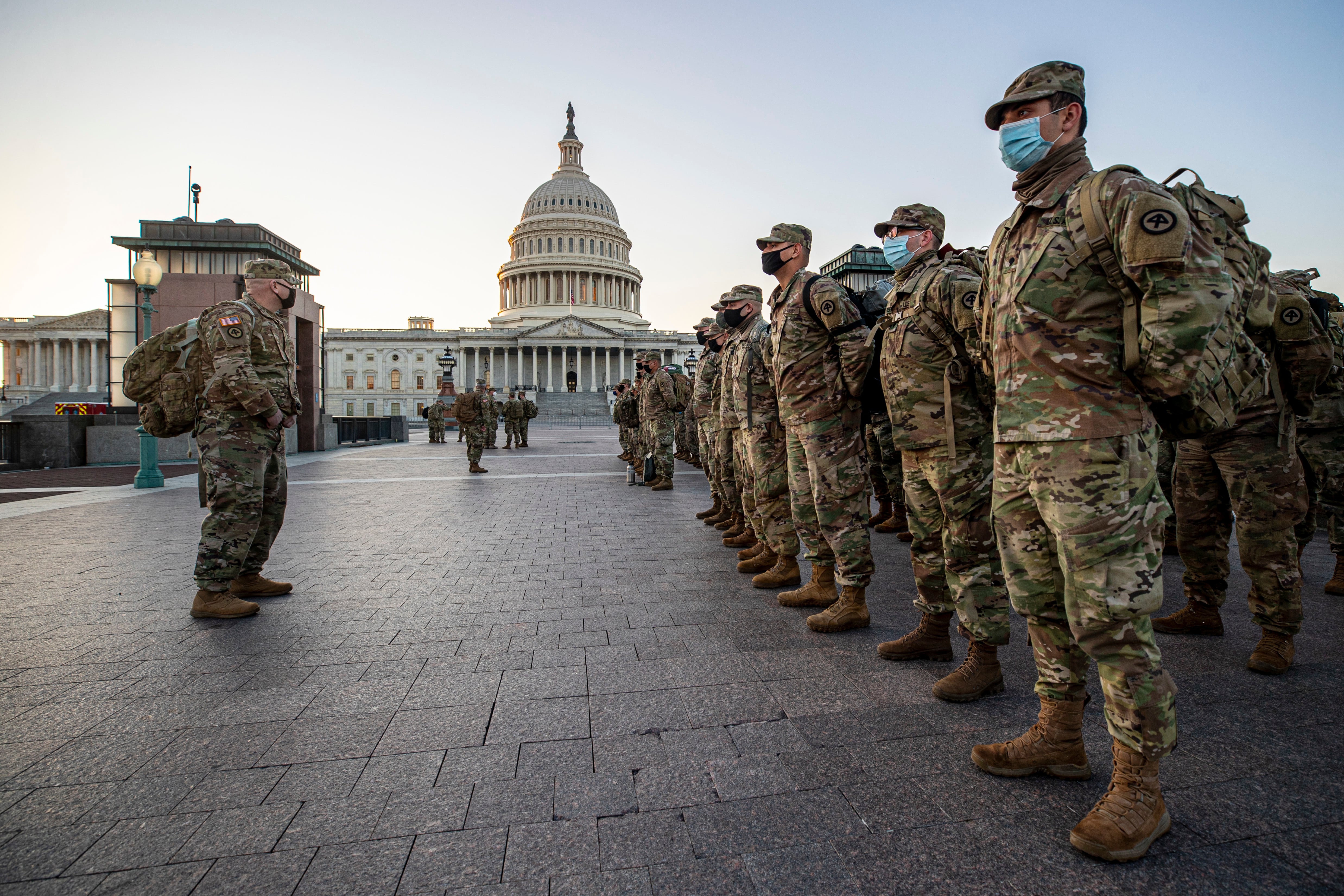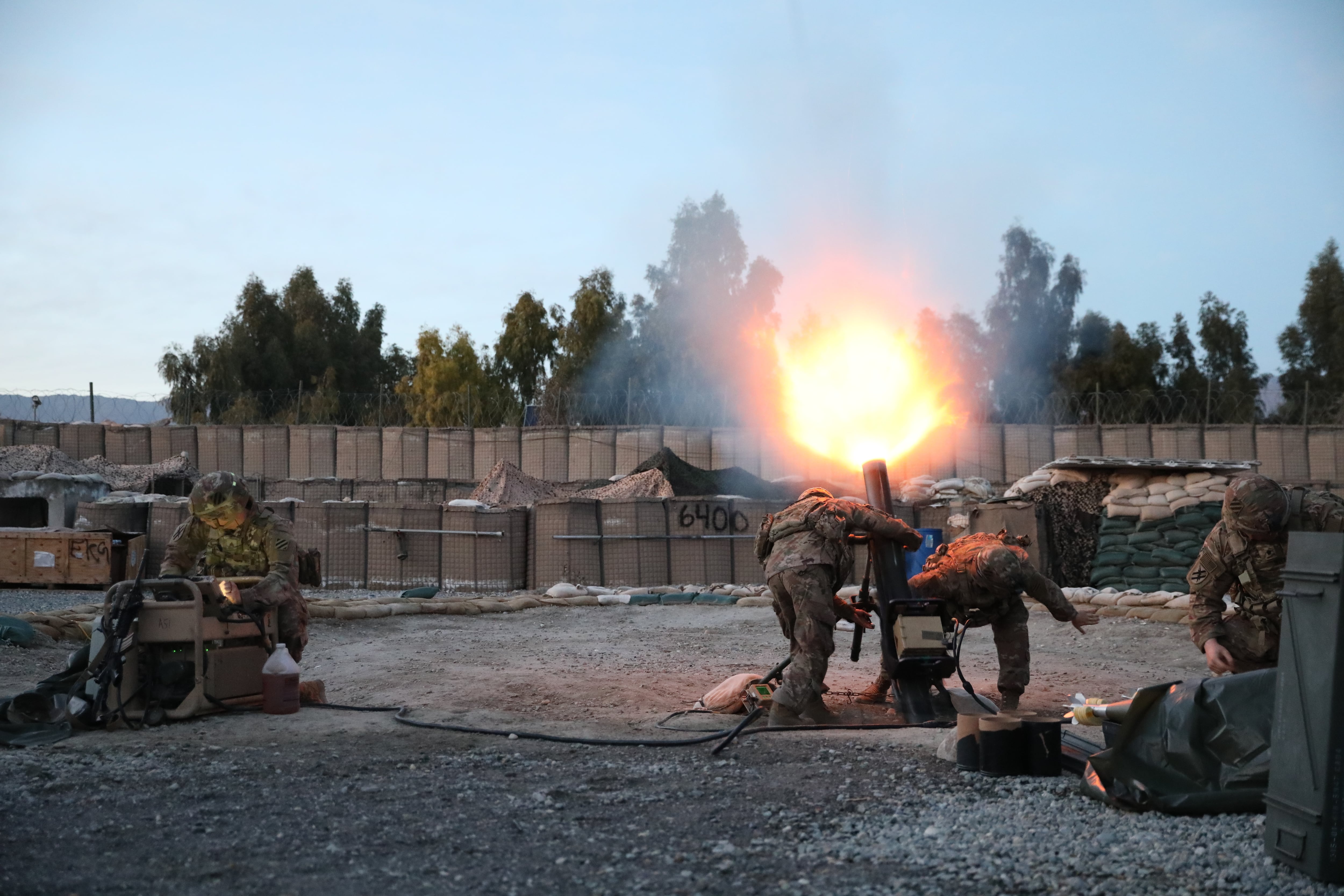The Army general helming U.S. Special Operations Command awarded six medals to Nigerien soldiers who fought in the Oct. 4, 2017, ambush near the village of Tongo Tongo that claimed the lives of four U.S. soldiers and four Nigerien soldiers.
The medals were presented Wednesday by SOCOM commander Gen. Richard D. Clarke and U.S. Ambassador Eric P. Whitaker, according to the U.S. Embassy in Niamey, Niger’s capital.
The awards included two Bronze Star Medals, one Army Commendation Medal and three Army Achievement Medals, SOCOM spokesman Maj. Anthony Mayne told Army Times.
Army Times is still working to obtain the award citations.
The four surviving soldiers who received awards were Cpl. Moustapha Kakalé, Soldier 2nd Class Ibrahim Assoumane, Soldier 2nd Class Abdou Kane and Soldier 2nd Class Kamel Issoufou Oumar.
Family members representing Adjutant Chef Soumana Bagué and Soldier 2nd Class Abdoul Rachid Yarima received posthumous awards and condolences from Clarke and Whitaker, according to embassy officials.
U.S. Army Sgt. La David Johnson is known to have been separated from the larger U.S. team alongside two Nigerien partners when they were unable to reenter their vehicle due to concentrated enemy fire.

“An estimated 20-30 dismounted enemy personnel were bounding on line towards SGT Johnson’s position,” the Pentagon’s investigation into the incident reads.
Johnson and his Nigerien partners began evading by foot away from the enemy. The two Nigeriens were cut down by enemy fire while bounding away with Johnson, according to a collection of medical forensics, terrain analysis and other evidence cited in the investigation.
Johnson made his final stand under a single thorny tree — the only cover in the area — and returned fire against the enemy, which had been pursuing him and his teammates with a vehicle-mounted DShK machine gun.
“We wish for these heroes to rest in peace as we honor them,” Whitaker said of the Nigerien casualties on the two-year anniversary of the ambush this month. “Of course, we can never fully repay the debt we owe, but we can remember their ultimate sacrifice and continue upholding the ideals for which they stood.”
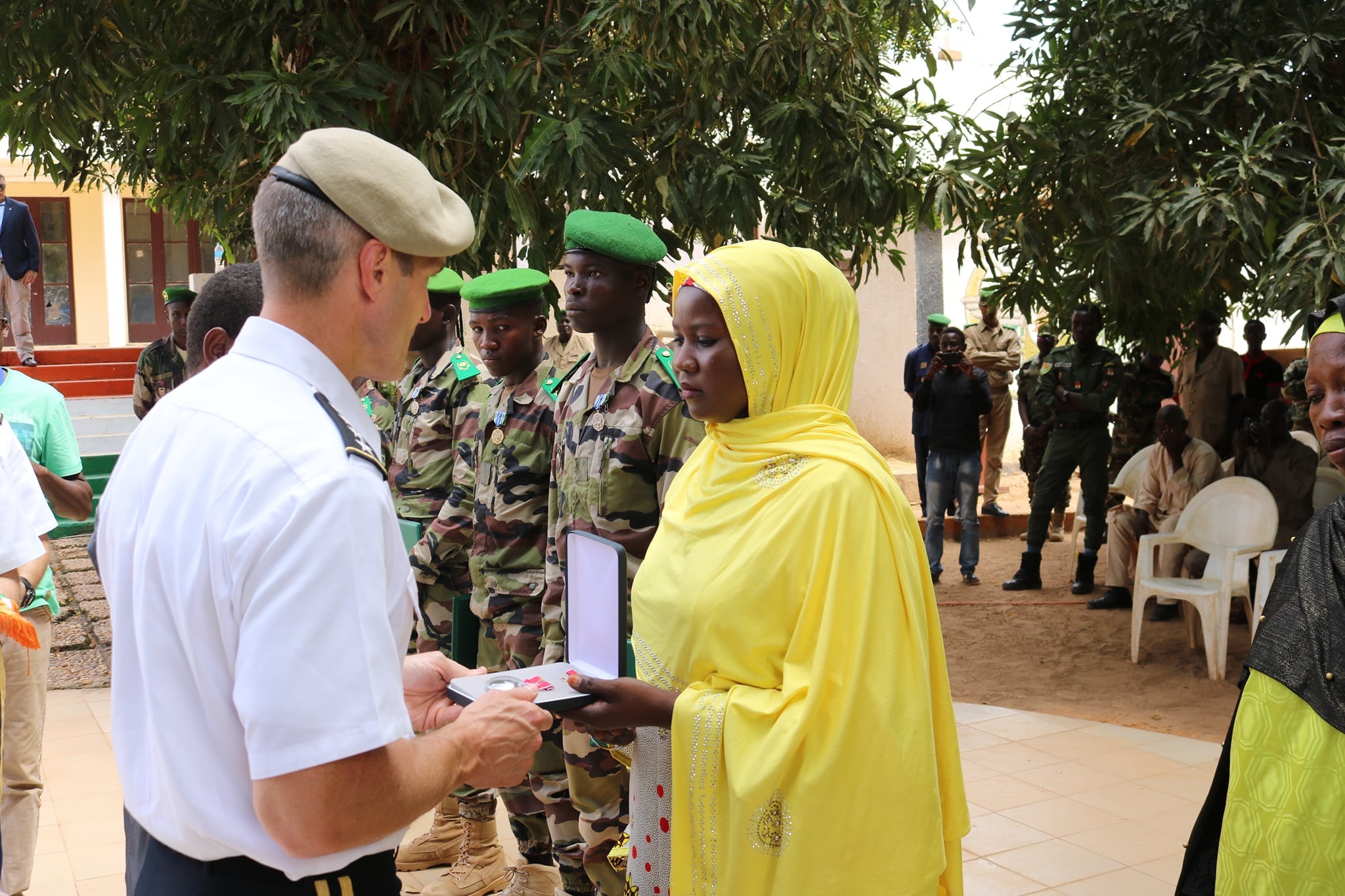
The ambassador said the United States remains committed to training and equipping Niger’s security forces in the fight against regional threats.
“And our bilateral relationship has never been stronger," Whitaker said.
“I believe there’s no more compelling evidence of an enduring partnership between Americans and Nigeriens than the tragedy of blood spilled by our soldiers together on the battlefield two years ago,” Whitaker added.
The ambush was significant in putting a spotlight on the U.S. military’s footprint in Africa.
Aside from the reality that most Americans were unaware of the role U.S. troops played in counterterrorism across the continent, the ambush also made clear how unprepared those forces were when conducting missions.
A lack of air support or persistent overhead ISR aircraft amplified the disaster near the Niger-Mali border when U.S. troops and their Nigerien partners were ambushed by an Islamic State-aligned force three times their size.
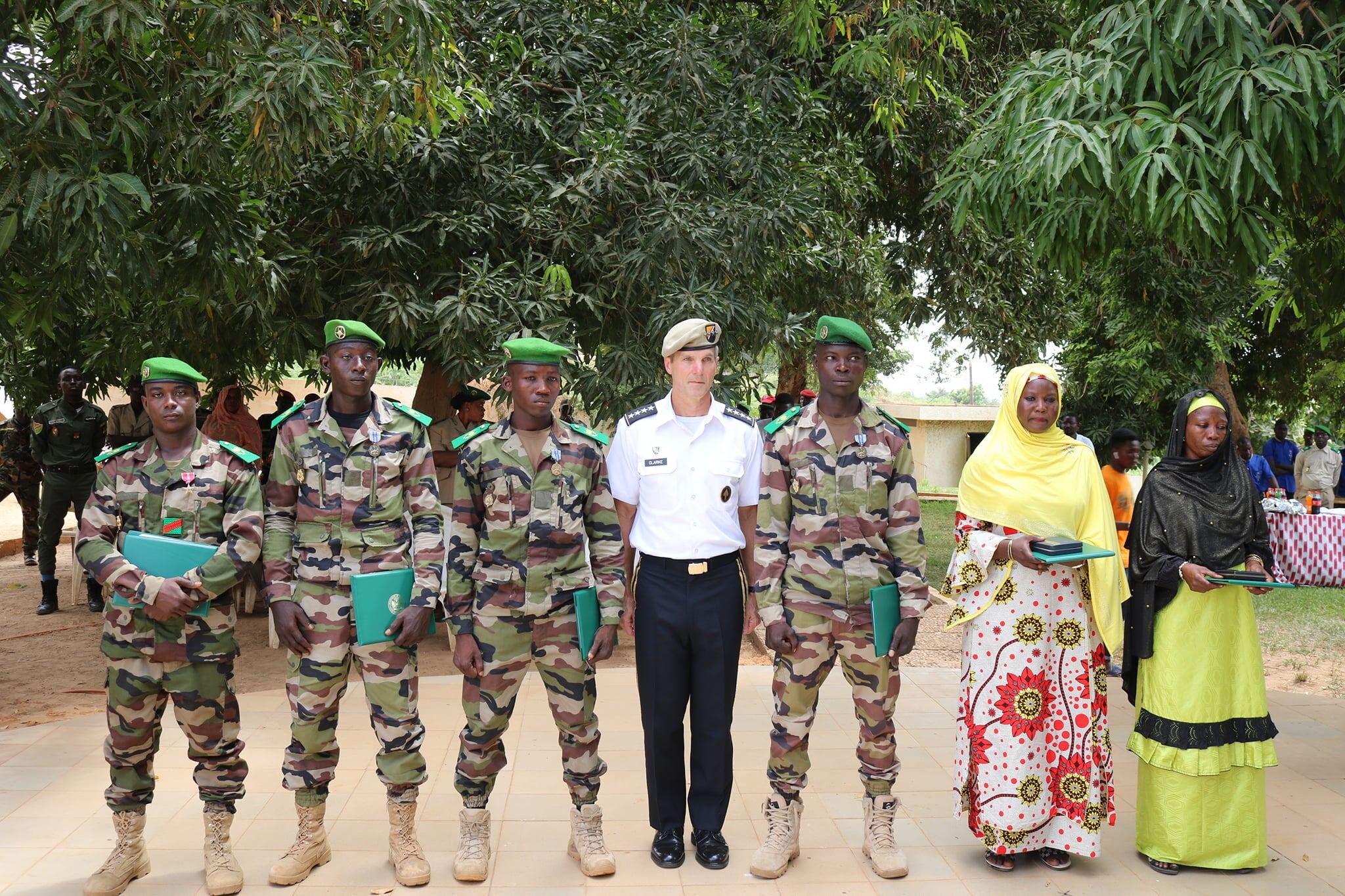
It took an hour and a half for the first aircraft to begin arriving overhead after the ambush began. Two French Mirage fighter jets conducted four show-of-force flyovers “right at treetop level … driving the enemy forces away,” said Army Maj. Gen. Roger Cloutier Jr. in May 2018.
Cloutier was the U.S. Africa Command chief of staff who oversaw the investigation into the shortfalls leading to the ambush. He now leads the Army component of AFRICOM.
While the French jets saved the lives of the remaining U.S. and Nigerien soldiers, it was too late for Staff Sgts. Bryan Black, Jeremiah Johnson and Dustin Wright and Sgt. La David Johnson, as well as four Nigeriens.
Those soldiers were all killed during the ambush.
AFRICOM leaders said in the fallout of the attack that they had made changes to their force posture to prevent another ambush, including increased firepower, increased ISR capacity and increased response times.
Since the ambush, family members of the fallen American soldiers have continued to criticize how the investigation into the incident was handled.
Some of the families have said that blame for the attack was unfairly heaped onto the lower-ranking officer who led the ground force during the mission, rather than the higher-ranking officers who green-lit the mission and pushed it forward after the team leader expressed concern.
Kyle Rempfer was an editor and reporter who has covered combat operations, criminal cases, foreign military assistance and training accidents. Before entering journalism, Kyle served in U.S. Air Force Special Tactics and deployed in 2014 to Paktika Province, Afghanistan, and Baghdad, Iraq.

